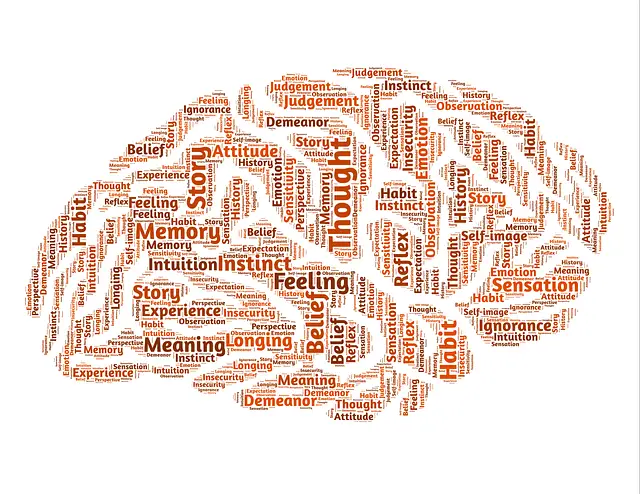Exploring 35 Psychology Degrees and Specializations
Psychology, as a discipline, encompasses numerous specialized areas that cater to various interests and career goals. Whether you’re interested in clinical practice, research, counseling, or specific aspects of human behavior, there’s a psychology degree to match your passion. Below are 35 degrees and specializations within psychology:

Page Contents
- 1 Exploring 35 Psychology Degrees and Specializations
- 2 1. Bachelor of Science (BSc) in Psychology
- 3 2. Bachelor of Arts (BA) in Psychology
- 4 3. Bachelor of Science in Clinical Psychology
- 5 4. Bachelor of Science in Counseling Psychology
- 6 5. Bachelor of Science in Forensic Psychology
- 7 6. Bachelor of Science in Child Psychology
- 8 7. Bachelor of Science in Educational Psychology
- 9 8. Bachelor of Science in Industrial-Organizational Psychology
- 10 9. Bachelor of Science in Health Psychology
- 11 10. Bachelor of Science in Neuropsychology
- 12 11. Master of Science (MSc) in Psychology
- 13 12. Master of Arts (MA) in Counseling Psychology
- 14 13. Master of Science in Clinical Mental Health Counseling
- 15 14. Master of Science in Forensic Psychology
- 16 15. Master of Science in Applied Behavior Analysis
- 17 16. Master of Science in School Psychology
- 18 17. Master of Science in Sports Psychology
- 19 18. Doctor of Philosophy (Ph.D.) in Psychology
- 20 19. Doctor of Psychology (Psy.D.)
- 21 20. Doctor of Philosophy (Ph.D.) in Clinical Neuropsychology
- 22 21. Doctor of Philosophy (Ph.D.) in Developmental Psychology
- 23 22. Doctor of Philosophy (Ph.D.) in Social Psychology
- 24 23. Doctor of Philosophy (Ph.D.) in Cognitive Psychology
- 25 24. Doctor of Philosophy (Ph.D.) in Industrial-Organizational Psychology
- 26 25. Doctor of Philosophy (Ph.D.) in Health Psychology
- 27 26. Doctor of Philosophy (Ph.D.) in Educational Psychology
- 28 27. Doctor of Philosophy (Ph.D.) in Forensic Psychology
- 29 28. Doctor of Philosophy (Ph.D.) in Counseling Psychology
- 30 29. Doctor of Philosophy (Ph.D.) in Applied Behavior Analysis
- 31 30. Doctor of Philosophy (Ph.D.) in School Psychology
- 32 31. Doctor of Philosophy (Ph.D.) in Sports Psychology
- 33 32. Certificate in Applied Psychology
- 34 33. Certificate in Industrial-Organizational Psychology
- 35 34. Certificate in Child Psychology
- 36 35. Certificate in Health Psychology
- 37 Motivational Song of Don Moen
Exploring 35 Psychology Degrees and Specializations
1. Bachelor of Science (BSc) in Psychology
- A foundational degree covering broad aspects of psychology, including human behavior, cognition, and research methods.
2. Bachelor of Arts (BA) in Psychology
- Emphasizes a liberal arts approach to psychology, often incorporating more coursework in humanities and social sciences.
3. Bachelor of Science in Clinical Psychology
- Focuses on the practical application of psychological principles in assessing and treating mental health disorders.
4. Bachelor of Science in Counseling Psychology
- Prepares students for careers in counseling and therapy, emphasizing communication skills and therapeutic techniques.
5. Bachelor of Science in Forensic Psychology
- Explores the intersection of psychology and the legal system, focusing on criminal behavior, profiling, and assessment.
6. Bachelor of Science in Child Psychology
- Specializes in understanding child development, behavior, and mental health issues in children.
7. Bachelor of Science in Educational Psychology
- Focuses on learning theories, educational interventions, and psychology in educational settings.
8. Bachelor of Science in Industrial-Organizational Psychology
- Studies psychological principles in workplace settings, including employee motivation, leadership, and organizational behavior.
9. Bachelor of Science in Health Psychology
- Explores the relationship between psychological factors and physical health outcomes.
10. Bachelor of Science in Neuropsychology
- Investigates the relationship between brain function and behavior, often focusing on cognitive functions affected by brain injuries or diseases.
11. Master of Science (MSc) in Psychology
- Offers advanced coursework in various psychological areas and research methodologies.
12. Master of Arts (MA) in Counseling Psychology
- Provides specialized training in counseling techniques, clinical assessment, and therapeutic interventions.
13. Master of Science in Clinical Mental Health Counseling
- Focuses on training counselors to work with individuals dealing with mental health issues.
14. Master of Science in Forensic Psychology
- Explores the application of psychological principles in legal and criminal justice settings.
15. Master of Science in Applied Behavior Analysis
- Specializes in behavioral therapy and interventions, often used in working with individuals with autism or developmental disorders.
16. Master of Science in School Psychology
- Prepares professionals to work in educational settings, addressing students’ academic and behavioral issues.
17. Master of Science in Sports Psychology
- Focuses on enhancing athletic performance and mental well-being in sports settings.
18. Doctor of Philosophy (Ph.D.) in Psychology
- Provides comprehensive training in research methods, theoretical knowledge, and specialization in a chosen area.
19. Doctor of Psychology (Psy.D.)
- Emphasizes clinical practice and applied psychology, preparing students for careers in therapy and counseling.
20. Doctor of Philosophy (Ph.D.) in Clinical Neuropsychology
- Focuses on understanding brain-behavior relationships, often for clinical practice and research.
21. Doctor of Philosophy (Ph.D.) in Developmental Psychology
- Concentrates on human development across the lifespan, often involving research and academia.
22. Doctor of Philosophy (Ph.D.) in Social Psychology
- Investigates social interactions, attitudes, and group behavior through research and experimentation.
23. Doctor of Philosophy (Ph.D.) in Cognitive Psychology
- Specializes in mental processes like memory, attention, and problem-solving through experimental research.
24. Doctor of Philosophy (Ph.D.) in Industrial-Organizational Psychology
- Focuses on applying psychological principles to workplace dynamics, leadership, and organizational behavior.
25. Doctor of Philosophy (Ph.D.) in Health Psychology
- Examines the interaction between psychological and physical health, often focusing on health promotion and behavior change.
26. Doctor of Philosophy (Ph.D.) in Educational Psychology
- Concentrates on learning theories, educational interventions, and psychology in educational settings.
27. Doctor of Philosophy (Ph.D.) in Forensic Psychology
- Explores psychology’s application in legal settings, criminal profiling, and forensic assessment.
28. Doctor of Philosophy (Ph.D.) in Counseling Psychology
- Focuses on counseling techniques, psychological assessment, and therapy interventions.
29. Doctor of Philosophy (Ph.D.) in Applied Behavior Analysis
- Concentrates on behavioral therapies and interventions, particularly for individuals with developmental disorders.
30. Doctor of Philosophy (Ph.D.) in School Psychology
- Addresses academic, behavioral, and mental health issues in school settings, often involving assessments and interventions.
31. Doctor of Philosophy (Ph.D.) in Sports Psychology
- Explores psychological factors influencing athletic performance, motivation, and well-being in sports.
32. Certificate in Applied Psychology
- Provides specialized training in specific areas of psychology, often for career enhancement or continuing education.
33. Certificate in Industrial-Organizational Psychology
- Offers specialized training in workplace psychology, focusing on employee behavior and organizational dynamics.
34. Certificate in Child Psychology
- Focuses on understanding child development, behavior, and mental health, often for specialized careers or further education.
35. Certificate in Health Psychology
- Provides specialized knowledge in the relationship between psychological factors and physical health outcomes.
Each psychology degree or specialization offers a unique path for individuals interested in various facets of human behavior, cognition, and mental health. Whether it’s clinical practice, research, counseling, or applied psychology, these degrees provide a robust foundation for pursuing diverse and fulfilling careers in the field of psychology.
The diversity within psychology degrees allows individuals to specialize and develop expertise in areas aligned with their interests and career aspirations. These degrees equip students with the knowledge and skills necessary to make meaningful contributions to the field of psychology across various domains.







